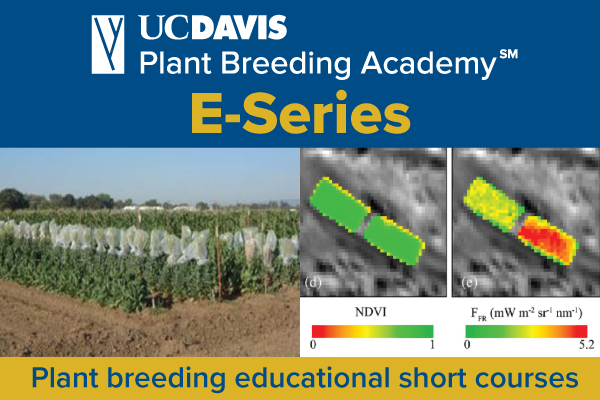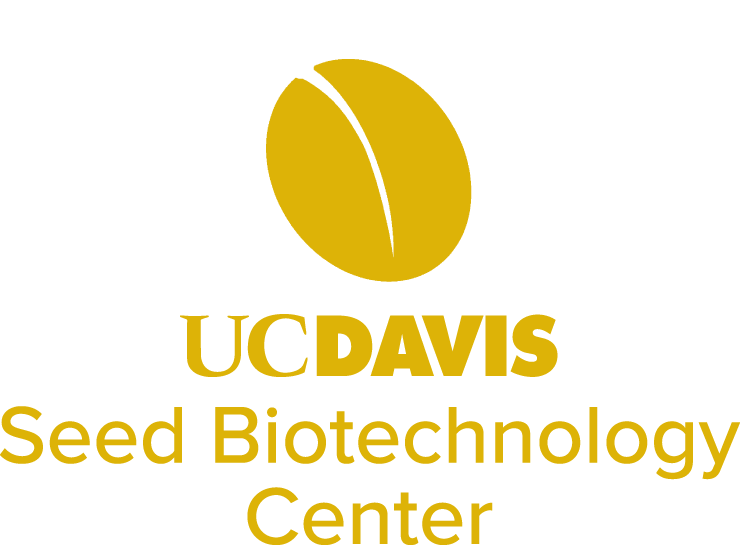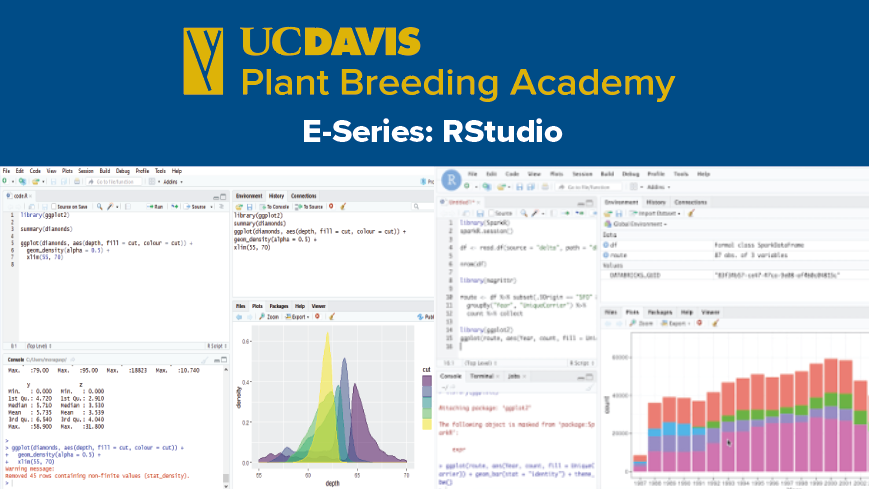
COURSE OVERVIEW:
Level 1: R for the Plant Breeders, Scientists, Trial Specialists, Agronomists, and their teams
- Introduction, set-up, and workflows
This module aims to introduce Seed industry professionals to the world of R and to guide them through setting up their work environments, tools, and workflows. This course will use the power of RStudio and the plethora of tools in the Tidyverse to guide the student through the whole process from data collection, good practices on data organization, reporting, and everything in between, always with the goals of transparency and reproducibility. This module is for beginners and those who didn’t have a chance to use R often.
~Instructor: Jose Luis Rodriguez Gil
Level 2: RStudio – Data exploration, visualization, and reporting basics
Designed for plant breeders, scientists, and their teams. This Level 2 course begins with an introduction to the R Markdown tool to create high-quality dynamic reports and presentations with minimal effort in a single, reproducible format, such as HMTL, PDF, Word, or slides. Data exploration and wrangling; ggplot; foundation statistics, model fitting, ANOVA, testing; intro to SpATS; digging through model outputs. Visualize, communicate, and influence!! “The simple graph has brought more information to the data analyst’s mind than any other device.” — John Tukey.
~Instructors: Jose Luis Rodriguez Gil and Alexandra Tomerius
This E-Series course is also a recommended prerequisite for UC Davis Plant Breeding Academy. As a bonus, if a student applies for the academy and is accepted, then expenses for RStudio or any single E-Series would be waived.
2 Levels Available in 2026 - See dates & individual registration below:
Each level of this ONLINE course is 2-half days
► Level 1: April 7 & 9, 2026
Time: 7:00 a.m. - 11:30 a.m. Pacific time zone (PDT)
Early Registration Price: $790*
Regular Registration Price: $890
*Early registration price expires- TBD
~ Registration coming soon!
► Level 2: May 5 & 7, 2026
Time: 7:00 a.m. - 11:30 a.m. Pacific time zone (PDT)
Early Registration Price: $790*
Regular Registration Price: $890
*Early registration price expires- TBD.
~ Registration coming soon!
INSTRUCTORS:
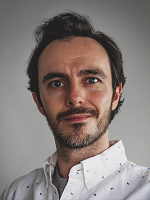
Jose Luis Rodriguez Gil, Ph.D.
Dr. Jose Luis Rodriguez Gil is an ecotoxicologist and environmental risk scientist with almost two decades of experience characterizing the effects of contaminants on the environment and aquatic systems. Jose Luis has worked with many classes of chemicals over the years but having completed his Ph.D. at the University of Guelph (Canada), a large portion of his work has focussed on plant protection products and agricultural settings. The large and complex nature of the datasets resulting from his research led him into the world of R, a subject he has been teaching at the university level for a few years, and for which he has received several awards.
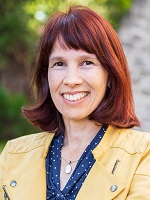
Alexandra Tomerius, Ph.D.
While earning her doctorate at the University of Hohenheim, Dr. Alexandra Tomerius worked in close cooperation with private industry plant breeding companies. She further devoted herself to the optimization of plant breeding as a post-graduate through early work as a research associate and later work as a freelance consultant. She was involved in projects related to the optimization of breeding winter wheat (Lochow-Petkus GmbH) and winter oilseed rape (DSV Deutsche Saatveredelung, Lippstadt). Since 2011, she has been and still is working for different private companies as a plant breeding consultant as well as giving training courses to academia and private industry in various fields of plant breeding, with a focus on statistics, field trial design, and breeding scheme optimization.
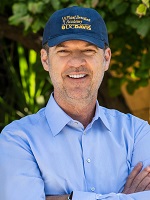
Jovan Djordjevic, Ph.D.
Dr. Jovan Djordjevic is a plant breeder and entrepreneur with over 30 years of experience in the global seed industry. His career began in 1996 with Monsanto France as a corn breeder, where he built a strong foundation in hybrid breeding. In 2005, he moved to Canada to lead canola hybrid breeding, playing a key role in transitioning the crop from open-pollinated to hybrid varieties. In 2010, Jovan relocated to California—agriculture’s Silicon Valley—where he served as Global Cucurbits Breeding Director for Nunhems.
Over the course of his prolific career, he has contributed to the release of more than 200 hybrid varieties across crops such as corn, canola, tomato, pepper, sweet corn, watermelon, melon, cucumber, onion, carrot, and leek.
Jovan currently serves as Director of the UC Davis Plant Breeding Academy, where he mentors the next generation of breeders and seed professionals. He also chairs the Plant Breeding Committee for the California Seed Association.
He is a seed business owner, co-founder, and board director at Murray River Seed Co, where he remains hands-on in breeding watermelon and melon. He believes that passionate people, working closely with growers, can truly transform the produce industry for the better.
Attention International students: Please note before you register that you may enter your international phone number in the "Course Registration Information" section but in the "Contact information/Billing information" section, phone numbers must be in US format so you can enter: (530) 400-1234. Email lelee@ucdavis.edu with any additional questions or issues you may have.
Questions? Contact Louise Lee at lelee@ucdavis.edu.
